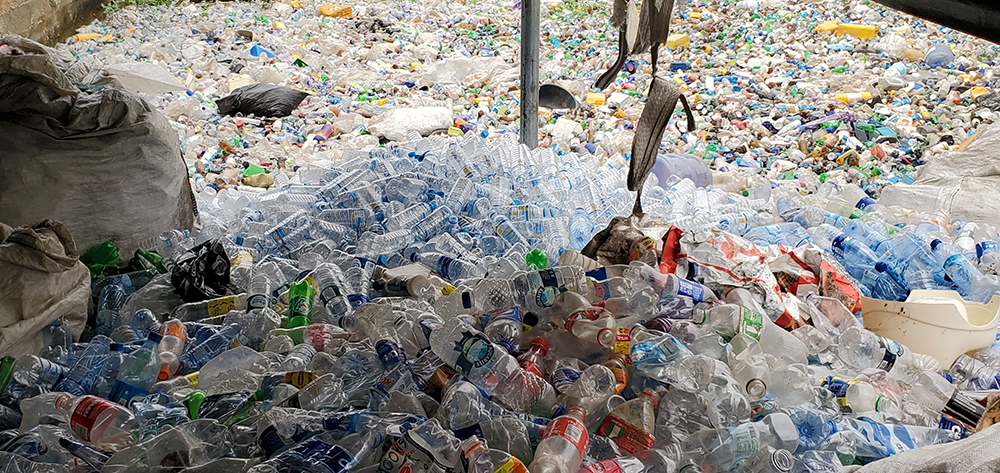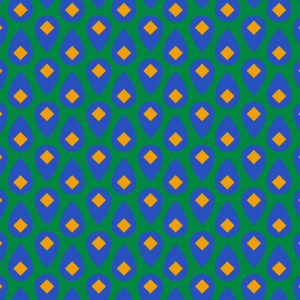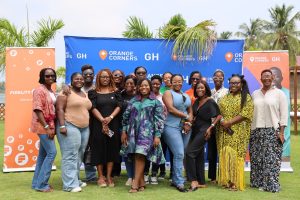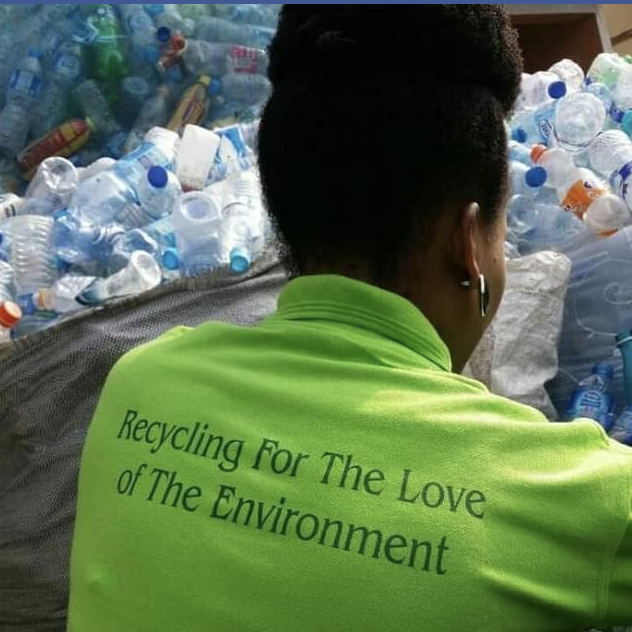
“There is so much material to pick up here, I am always running around,” said Mariam Lawani. At the end of her street, there is a canal running through town. But the problem with the canal is that it overfloods constantly, creating streets swamped with plastic waste. It created discomfort and stress for Mariam, as she saw it every day, especially when it started to rain. “I started to pay attention to it, as it intrigued me. I found myself doing research, preventing the plastic floods from happening again. And look at me now, I have built a whole startup around it!” Her startup, Greenhill Recycling Limited, is based in Lagos and provides the community recycling services. OCHQ interviewed Mariam to get to know her initiative.
It is really rewarding to collect plastic and do something good for the community.
Could you tell us more about your startup?
“Greenhill Recycling is a social enterprise born out of the urgent need to tackle the growing plastic waste crisis and unemployment problem in Nigeria. We provide a platform where people, especially in rural areas, can create value from waste generated in their communities to live a healthier and longer life. We believe that waste, if collected correctly, can strengthen the recycling value chains by upcycling and recycling it. So to say, waste is a resource, where you can extract value out out of.”
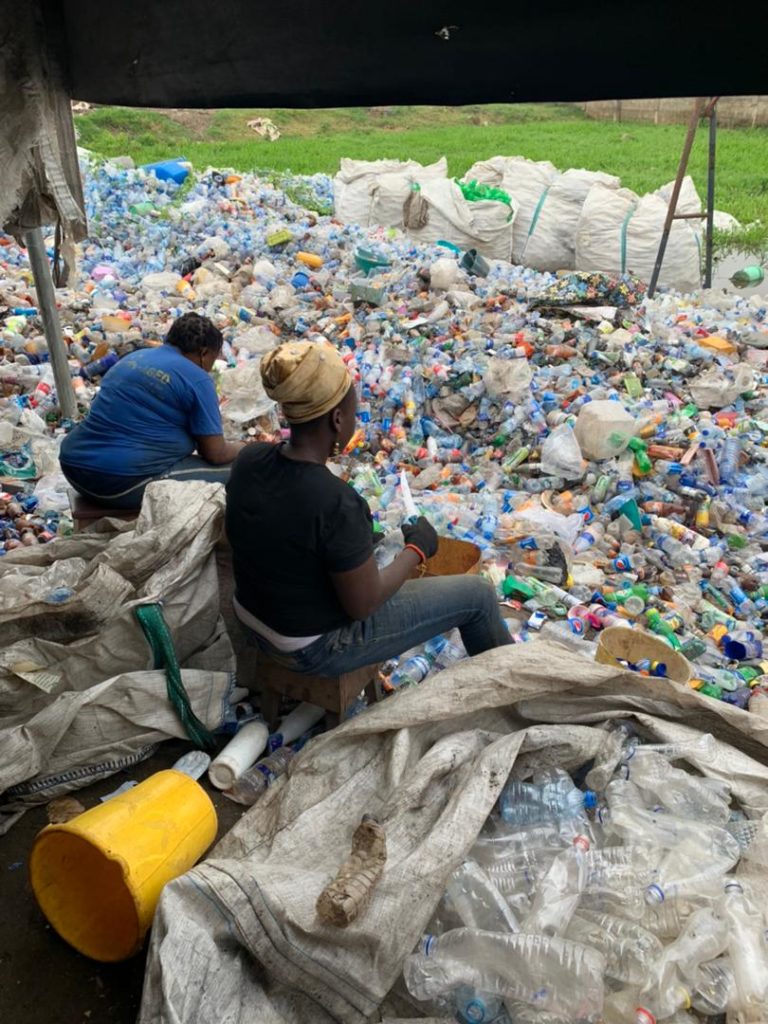
How did you launch your startup?
“In April 2016 I slowly but steady started to explore my idea. In June that same year, we already started to collect plastic from people on the street, churches and homes. I collected all the material in in my semi-detached garage. Then it became a huge mess.
My startup truly began as a charity, a good cause to which you could give plastic waste to. We worked with an incentive model, proposing that people are pulled toward behaviours that lead to rewards and pushed away from actions that might lead to negative consequences. It is really rewarding to collect plastic and do something good for the community.”
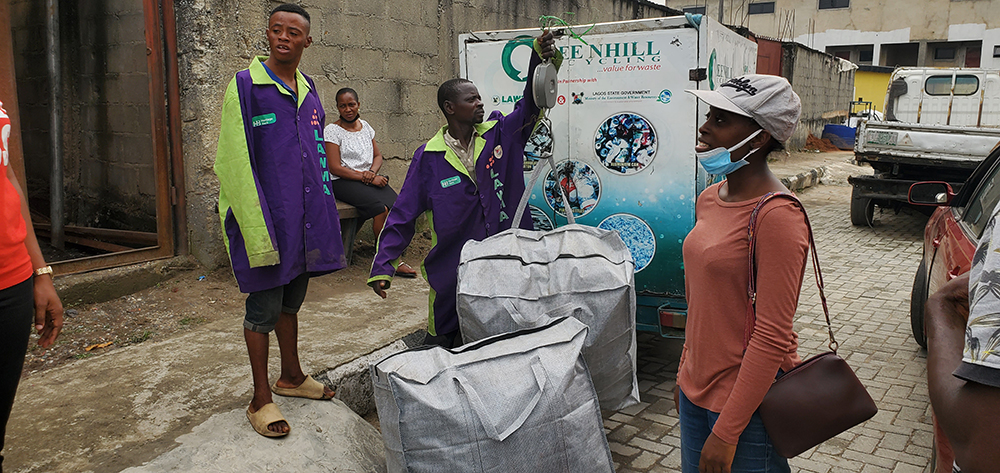
The goal is that by February next year, we will collect more than 250 tons of plastic waste.
But eventually we couldn’t afford that. It is a lot of work to change behaviour. So instead, we modified and refined our business model and focused on creating a circular economy, so people could benefit from the value that we were creating.
In 2018, I officially resigned from my job, pumping all my salary into the project. It was just passion at the time, and it still is.”
How did your startup develop from there?
“We stopped going to far places and instead explored communities adjacent to our town. Over time, we have also invested in a compressing machine that derives more value from plastic, employed more people and contributes to the circular economy.”
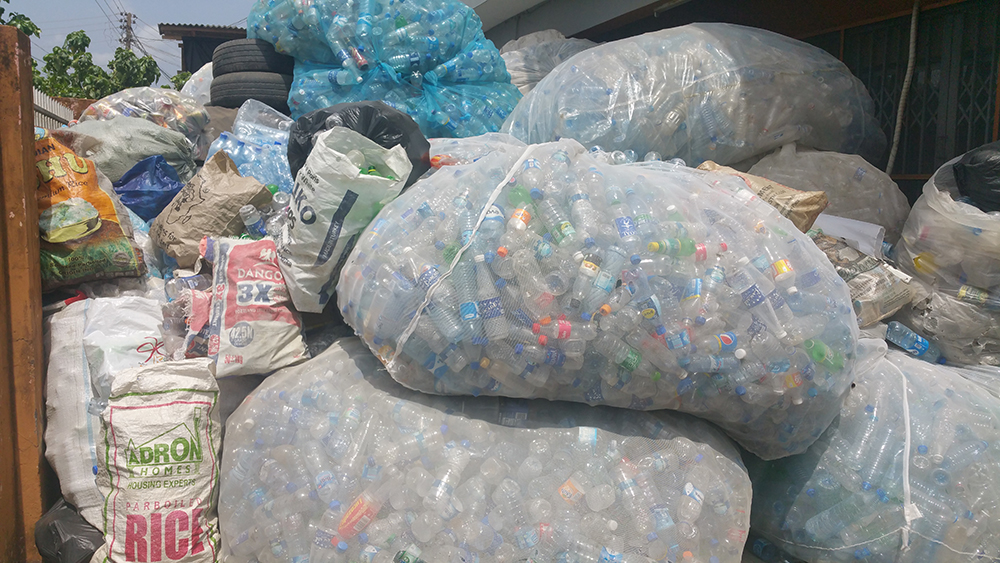
And what do you do with the waste you collect?
“In exchange for recyclable waste, users earn GREENPOINTS which can be converted to an incentive or cash. We offer clients a convenient, reward-for-recycling service that recovers post-consumer and post- industrial waste, preventing them from getting to dumpsites or causing an imbalance in our ecosystems. Corporate organisations can also contribute in order to achieve their corporate sustainability goals.
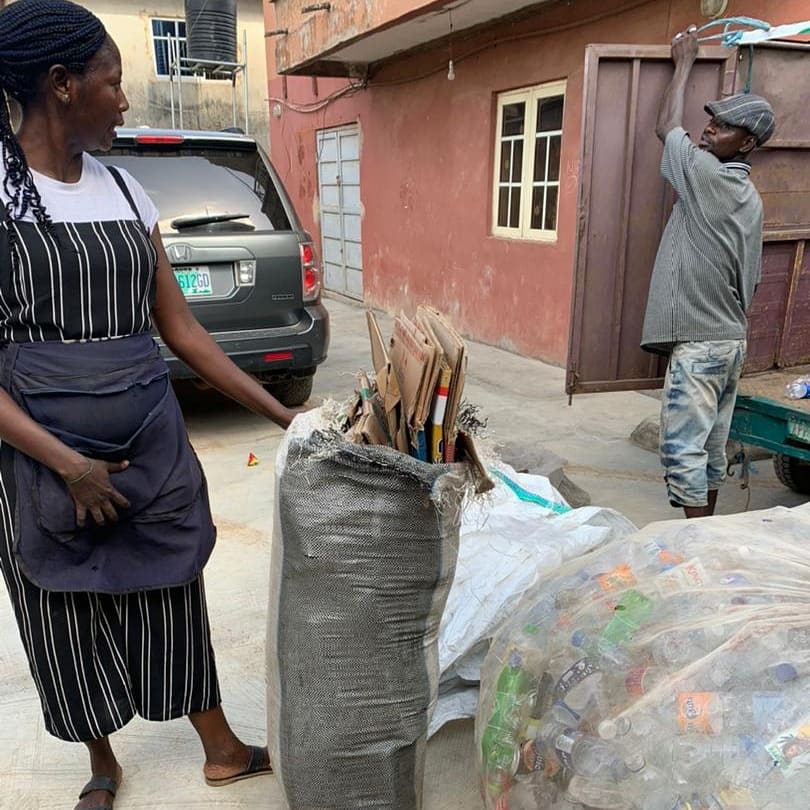
Waste is a resource: it is misplaced resources in motion. They are misplaced and they are moving but the value can be created out of them if you can recover them through that motion. We are on a mission to create more jobs and wealth and contribute to mitigate climate change. We want to show more people that waste can be a currency and we are able to show people that it is a currency.”
We focus on creating a circular economy, so people could benefit from the value that we were creating.
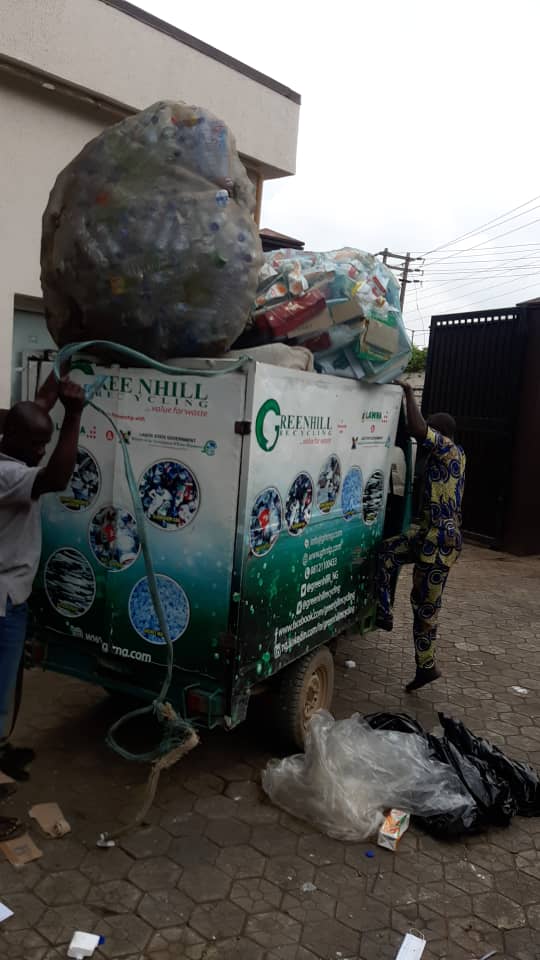
What are some of the setbacks you have experienced?
“When the Covid-19 pandemic started to have more and more ramifications on the world, Greenhill Recycling was on the verge of bankruptcy. The space that was given to us had to be given back to the original owner. That was very frustrating as we were a capital and labour intensive business. We were a team of 20, whom I all had to let go. They couldn’t hang around, they had to make money somewhere else. It had nothing to do with structure, but infrastructure: we were going in the right direction.”
What drove you to stay determined?
“Passion, that was the only thing that really drove me. And a bit of faith. I just knew that this could work. So we moved. Last year, we started again from scratch, we bought new materials. I was extremely sad, the economy was already terrible amid the pandemic. But the Orange Corners Nigeria programme really challenged me to stay busy, and I made it to the second place of OCIF. Besides that, I received a full scholarship to do a master’s programme. I used my energy for something else. I asked around for us and discovered I shouldn’t give up. I realised so much from a business and personal point of view.
OCIF was a major funding we received and I am very thankful for it. We haven’t received all the money, which is good. I believe 75% of the money is funding and the other 25% is a loan. The first money transfer is allocated over a period of 18 months and the rest will follow if Greenhill meets the key performance indicators (KPI). It is beautiful the way it is structured: it assures you the money as long as you grow. This helps entrepreneurs to keep their business growing and stay motivated.”
We are on a mission to create more jobs and wealth and contribute to mitigate climate change. We want to show more people that waste can be a currency and we are able to show people that it is a currency
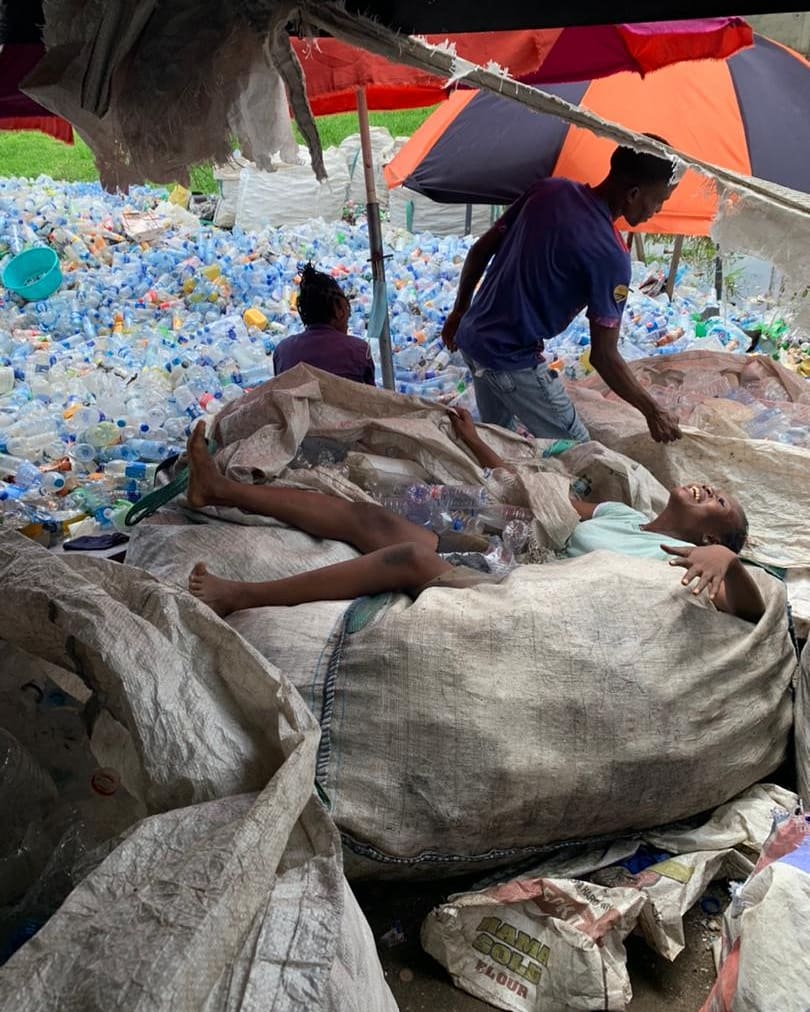
What would you say your goal is for Greenhill Recycling?
“The beautiful thing now is that I am not limited in my thinking: financially, I have all the resources, partly because of OCIF. Our goal is to have our own facility, where we don’t need to pay rent, collect more, hire more people, expand to other facilities, and expand across Lagos. Now, we are only working across seven communities. The goal is that by February next year, we will collect more than 250 tons of plastic waste.
I have a very clear vision for Greenhill, I can see it. I hope to bring this ambition to fruition. There is so much plastic and waste, we can collect and use the money we generate to pay school fees and other household bills. “
Do you have advice for other entrepreneurs?
“Start from where you are and use what you have. There is never a “right” time to start to explore an idea. I started from the garage of my house. It took courage. As I continued and worked on my business, I made mistakes and learned from it.
Also, ask yourself why you are doing something: Are you only doing what you are doing because it is a trend? Start and keep going and be resilient. That is my advice to any entrepreneur out there. I believe challenges across Africa are very similar, but our growth mindsets can only be developed through dedication and hard work.”

The beautiful thing now is that I am not limited in my thinking
Website: www.ghrng.com
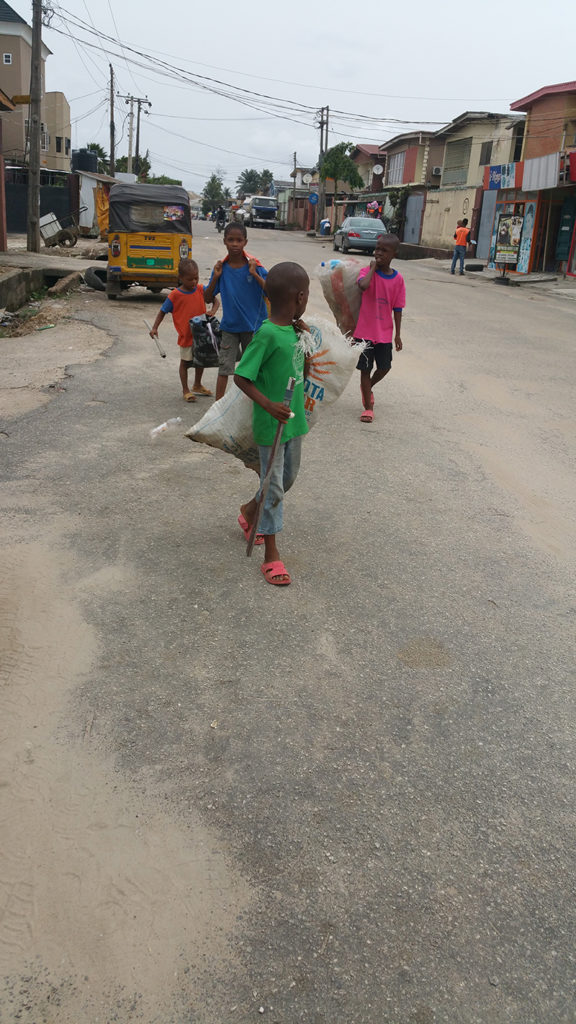
Orange Corners Innovation Fund (OCIF) provides fund managers with capital to invest in early-stage startups.
OCIF is an additional programme to the Orange Corners incubation programmes. It aims to stimulate innovation and improve access to finance for starting entrepreneurs in Africa, the Middle East and Southeast Asia.

